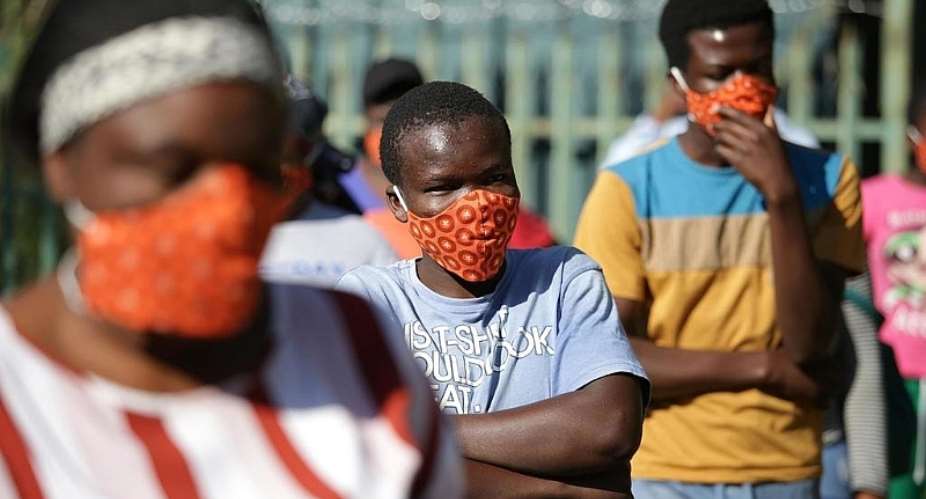The coronavirus could kill 150,000 people in Africa in a year unless urgent action is taken, according to a World Health Organization (WHO) modelling study that says more than 230 million people will be infected.
Authors of the research, which was published on Friday in the journal BMJ Global Health, predicted a lower infection rate than in other parts of the world like Europe and the United States, with fewer severe cases and deaths.
But although they said many African nations had been swift to adopt containment measures, they warned that health systems could still quickly become overwhelmed.
"Our model points to the scale of the problem for health systems if containment measures fail," said the authors.
The study comes in the wake of warnings that Covid-19 threatens a health emergency in developing nations where fragile health systems are struggling with other chronic diseases.
Experts at the WHO's Africa office modelled likely rates of exposure to the virus and infection in the 47 countries under its regional remit, which excludes Djibouti, Egypt, Libya, Morocco, Somalia, Sudan and Tunisia.
Some 231 million people, or 22 percent of the one billion people in the region were expected to be infected in the 12 month period -- most of them showing few or no symptoms.
But an estimated 4.6 million people would need to be admitted to hospital, while 140,000 would have severe Covid-19 infection and 89,000 would be critically ill.
That would lead to between some 150,000 deaths the study suggested.
The modelling estimates what would happen for each country over the period of a year from the beginning of widespread and sustained community transmission.
Problems for smaller countries
Researchers warned that more hospital admissions for Covid-19 would divert the limited resources to tackle health issues in the region, such as HIV, tuberculosis, malaria and malnutrition.
"The region will have fewer deaths, but occurring more in relatively younger age groups, amongst people previously considered healthy - due to undiagnosed non-communicable diseases," the report said.
Transmission was estimated to be greatest in small nations, with Mauritius found to have the highest risk of exposure. Of the region's large countries, South Africa, Cameroon and Algeria were also in the top 10 for exposure risk.
The authors calculated this risk by looking at each country's "gathering factor" (including family size and population density), people's likely ease of movement, sanitation and hygiene practices.
Researchers factored in each country's measures to control the spread of the virus, including physical distancing.
They also looked at health risk factors - proportion of the population over 65, HIV prevalence (as a proxy for chronic communicable conditions) and diabetes (as a proxy for non-communicable chronic illness).
The report assumed that some 88 percent of people would not know they had the virus, with either mild symptoms or none at all, while four percent would suffer severe or life-threatening illness.





 Dumsor: Mathew Opoku Prempeh has been disrespectful, he should be fired – IES
Dumsor: Mathew Opoku Prempeh has been disrespectful, he should be fired – IES
 NPP prioritizing politics over power crisis solution — PR Strategist
NPP prioritizing politics over power crisis solution — PR Strategist
 E/R: Gory accidents kills 3 persons at Aseseaso, several others critically injur...
E/R: Gory accidents kills 3 persons at Aseseaso, several others critically injur...
 Nobody can come up with 'dumsor' timetable except Energy Minister – Osafo-Maafo
Nobody can come up with 'dumsor' timetable except Energy Minister – Osafo-Maafo
 Dumsor: You ‘the men’ find it difficult to draw timetable when ‘incompetent’ NDC...
Dumsor: You ‘the men’ find it difficult to draw timetable when ‘incompetent’ NDC...
 We’re working to restore supply after heavy rains caused outages in parts of Gre...
We’re working to restore supply after heavy rains caused outages in parts of Gre...
 NPP government plans to expand rail network to every region — Peter Amewu
NPP government plans to expand rail network to every region — Peter Amewu
 Dumsor must stop vigil part 2: We’ll choose how we demonstrate and who to partne...
Dumsor must stop vigil part 2: We’ll choose how we demonstrate and who to partne...
 2024 elections: NDC stands on the side of morality, truth; NPP isn't an option —...
2024 elections: NDC stands on the side of morality, truth; NPP isn't an option —...
 Akufo-Addo has moved Ghana from 'Beyond Aid' to ‘Beyond Borrowing’ — Haruna Idri...
Akufo-Addo has moved Ghana from 'Beyond Aid' to ‘Beyond Borrowing’ — Haruna Idri...
